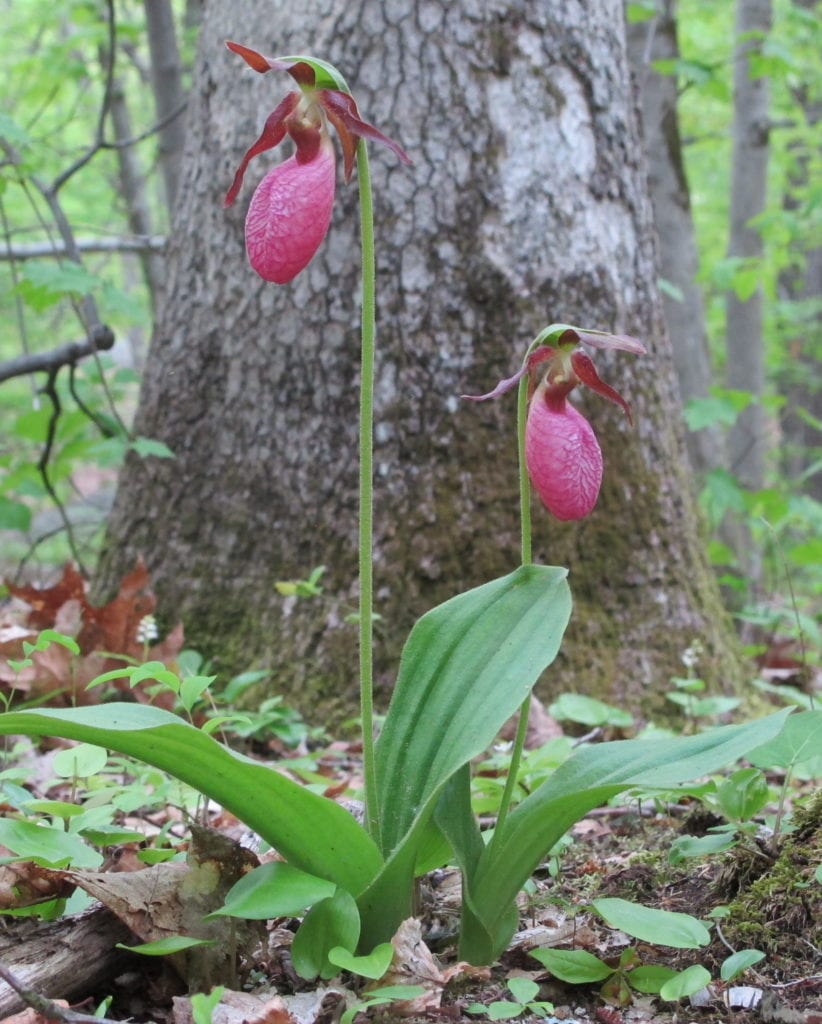
A new study featuring historical observations collected by the philosopher and author Henry David Thoreau, combined with new observations, shows that spring wildflowers may face challenges in a warming climate. Researchers at Carnegie Museum of Natural History, Boston University, University of Maine, Syracuse University, and University of Tennessee, Knoxville recently published the study in the scientific journal, Ecology Letters,revealing that understory wildflowers are less responsive to climate change than the trees above them.
Conservation biologists Richard Primack and Caitlin McDonough MacKenzie at Boston University approached Mason Heberling, Assistant Curator of Botany at Carnegie Museum of Natural History, with scientific observations initiated by Thoreau in Concord, Massachusetts in the 1850s. The data includes tree and wildflower leaf out dates measured for 37 separate years between 1852 to 2018.
Primarily as a result of human activities, temperatures in Concord have warmed by 3 degrees Celsius over the past century. Over this same time period, tree and wildflower leaf out dates have shifted significantly.
“Wildflowers are now leafing out about one week earlier than 160 years ago, but the trees are leafing out two weeks earlier. Understory wildflowers need the sunny conditions before the trees leaf out for their energy budgets, but we didn’t know how a shadier spring would affect these plants on the ground,” says Caitlin McDonough MacKenzie.
The research team compared Thoreau’s observations to photosynthetic data collected by Heberling, and Susan Kalisz, at the University of Tennessee, Knoxville, in a forest in Fox Chapel, Pennsylvania, near Pittsburgh, as part of a multi-year field experiment. Heberling adapted these measurements to calculate how temperature-driven shifts in trees leafing out has impacted wildflowers from Thoreau’s time until now.
The combined analysis shows that small differences in the responses of wildflowers versus trees to a warming climate could be harming wildflower abundance and flowering already, with greater effects in coming years.
“Combining our work from Pittsburgh with Thoreau’s data revealed an overlooked, yet critical, implication of how our changing climate is affecting native wildflowers beloved by so many people, right here at home,” says Mason Heberling.
As the climate warms, the window of time between wildflower emergence and tree leaf out will likely shorten, leaving wildflowers less time to photosynthesize in the spring. Current climate models predict a 2.5 to 4.5 degrees Celsius temperature increase in the northeastern U.S. by 2080, potentially more than double the temperature increase we have seen over the past century. What does this mean for the future of forests and wildflowers? Further studies are ongoing, but we may see fewer wildflowers in the future.
Read the full paper in Ecology Letters.
Heberling, J.M., McDonough MacKenzie, C., Fridley, J.D., Kalisz, S. & Primack, R.B. 2019. Phenological mismatch with trees reduces wildflower carbon budgets. Ecology Letters, in press. doi: 10.111/ele.13224 https://onlinelibrary.wiley.com/doi/10.1111/ele.13224
Richard Primack, a co-author of the study, will be speaking at Carnegie Museum of Natural History on Monday, February 11that noon as part of the R.W. Moriarty Science Seminar series. R.W. Moriarty Science Seminars are free and open to the public.
This research was partly based upon work supported by the National Science Foundation under Awards No. DBI-1612079 to M. Heberling, and DEB-1457531 and DEB-144552 to S. Kalisz. Any opinions, findings, and conclusions or recommendations expressed in this material are those of the author(s) and do not necessarily reflect the views of the National Science Foundation.
